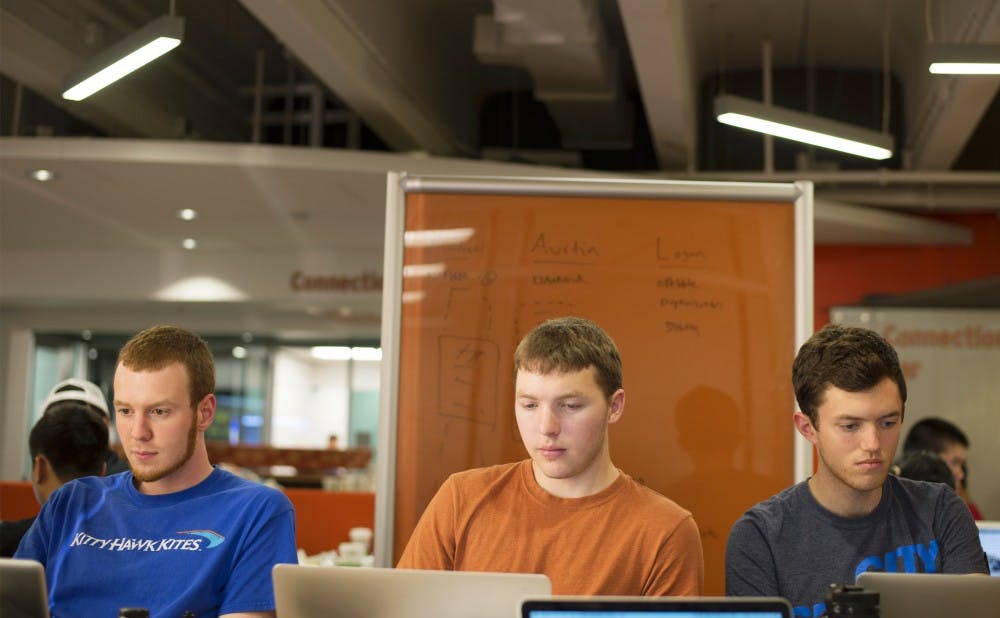Student hackers from across the country gathered in Gross Hall this weekend to explore the intersection between technology and social good.
HackDuke 2014: Code for Good was Duke’s second 24-hour hackathon. The conference, which was a collaboration between the HackDuke team and the Kenan Institute for Ethics, brought student programmers together with technology and non-profit mentors from companies and organizations including Google, ESPN, Urban Ministries of Durham and The Emily K Center. More than 300 student participants came to the hackathon, completing 48 projects together.
“We wanted to foster relationship building between the students and the mentors. One of the big things we did this year was eliminate prizes,” said HackDuke founder Dennis Li, a senior.
All prizes came in the form of donations to charities, as opposed to the $5,000 prize that was given to the winner of the inaugural HackDuke last semester. Teams were awarded based on their project’s applicability in three different categories—health and wellness, education and inequality.
“The fact that there's no prizes means that everyone is actually interested in the outcomes of their projects and helping people," Li noted.
Only half of the participants were Duke students this semester, Li added.
“Some were from Penn, some were from MIT, and we had some California drop-outs, of course,” he said.
Another new addition to the conference were mandatory brainstorming sessions—a difference from the typical model of 24 hours of straight hacking.
“Usually with hackathons, there's an opening ceremony and then people just start hacking until closing ceremony,” Li said. “If you’re a technical person, you don’t have a lot of contact with these kinds of social issues, so we wanted to postpone hacking until after they’ve had these experiences.”
Fifteen non-profit organizations individually presented their organizations and missions to the student hackers.
“[The non-profit experts] presented exactly what their missions and goals were and how technology can make their operations more efficient, analyze more data and help make them better,” said junior Ashley Qian, another coordinator of the event.
Throughout the conference, hackers had access to caffeine stations featuring coffee, Coca-Cola, Red Bull and a DJ, as well as a hardware station stocked with $3,000 worth of donated hardware items programmers could use for their hacks, said HackDuke staffer Logan Su, a junior.
Although this year's HackDuke was smaller than the last semester's—which had more than 500 participants—it still made for an enjoyable experience, said Chinmay Patwardhan, a junior who has participated in both hackathons.
"It was an awesome idea to connect non-profits with passionate developers to implement solutions," he said. "Both the students and the non-profits definitely benefited from that setup."
Senior Nihir Patel noted that collaborating on this event with HackDuke was a experiment for Team Kenan.
"It hasn't really been done on a college campus before, and we were really happy to see a heightened sense of collaboration and purpose amongst hackers as compared with our last hackathon," he said. "Kenan and Hack Duke compliment each other well in terms of goals and knowledge base. We'll be cooking something exciting up for this fall"
Get The Chronicle straight to your inbox
Signup for our weekly newsletter. Cancel at any time.

